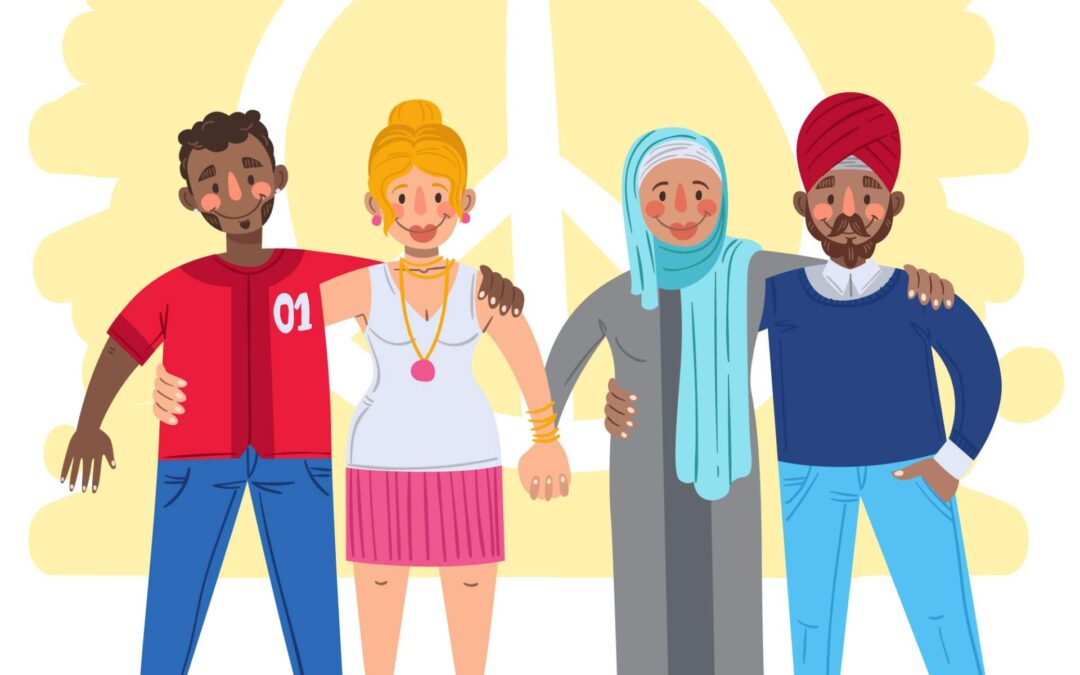Why don’t you touch a hot stove with your bare hands? Is it because it’s immoral? Because God forbids it? Because people around you would ostracize you if you did? No, the reason you don’t touch a hot stove is simple: it’s painful. This seems obvious. But for those who have experienced religious trauma, the reason for avoiding certain behaviors may not come from concern for their own well-being, but from deeply ingrained feelings of guilt, shame, or fear of divine punishment.
This, I believe, forms the base of religious trauma: a learned fear-based response, where individuals internalize the wrong lesson—not out of genuine understanding, but from the pressure to avoid punishment or ostracism.
However, religious trauma can manifest differently depending on the faith tradition. Not all religions share the same beliefs or structures, and as a result, the way trauma presents itself can vary greatly. Let’s explore how religious trauma might look across different faiths.
Christian Teachings and Trauma
In many Christian traditions, there is a strong focus on sin, guilt, and repentance. Individuals often internalize a deep sense of shame for actions deemed sinful, impacting their self-worth. The fear of eternal damnation may lead to chronic anxiety. Emphasis on sexual purity and rigid gender roles can further contribute to trauma, particularly around issues of body image and sexuality. For those questioning their faith or exploring other beliefs, the teaching that Christianity is the only true path can cause feelings of alienation and fear.
Religious Trauma in Mormonism
Working with ex-Mormons has been especially rewarding, as their experiences often parallel those of other Christians, though amplified in certain ways. The LDS Church’s structured hierarchy can create a sense of control and surveillance, making it difficult for those who leave to reclaim their autonomy. Authoritarian leadership may lead to feelings of betrayal, while spiritual solutions are often emphasized over mental health care, which can prolong emotional struggles.
Trauma in Islamic Communities
Islam shares many similarities with Christianity that can contribute to religious trauma. Gender roles and expectations, especially for women, can result in limitations on autonomy and lead to feelings of restriction and anxiety. Fear of divine judgment and the afterlife can create chronic stress, especially when religious expectations feel unattainable. In Muslim and Arab cultures, the emphasis on collective identity and honor means deviation from religious norms may lead to stronger social ostracism and familial conflict than in some Christian communities.
Jewish Identity and Trauma
In Judaism, the fear of social ostracism is also profound. Judaism is not just a religion, but a cultural and ethnic identity. Leaving or questioning the faith can lead to a complex identity crisis, with individuals feeling alienated from both their heritage and community. The historical persecution of Jews, including the Holocaust and pogroms, has left a collective trauma that can still shape the psychological experiences of Jewish individuals today.
Hinduism and Caste-Based Trauma
For Hindus, the remnants of the caste system, despite being officially abolished in many places, still influence social dynamics. Those from lower castes or those rejecting the caste system can face discrimination and exclusion. Gender roles, particularly in traditional practices, can create trauma for women, who may feel burdened by societal expectations around marriage, purity, and subservience.
The Common Thread of Religious Trauma
Religious trauma is not confined to a specific faith tradition. For many, discovering problematic aspects of religious history, doctrine, or practice can lead to a sense of betrayal, disillusionment, and cognitive dissonance. When a belief system that once offered security becomes a source of anxiety or shame, the impact can be profound.
Religious trauma isn’t about leaving behind beliefs, but about healing from the ways those beliefs were misused or misinterpreted. By understanding the different ways trauma manifests across religious traditions, we can better support those on the path to healing.

